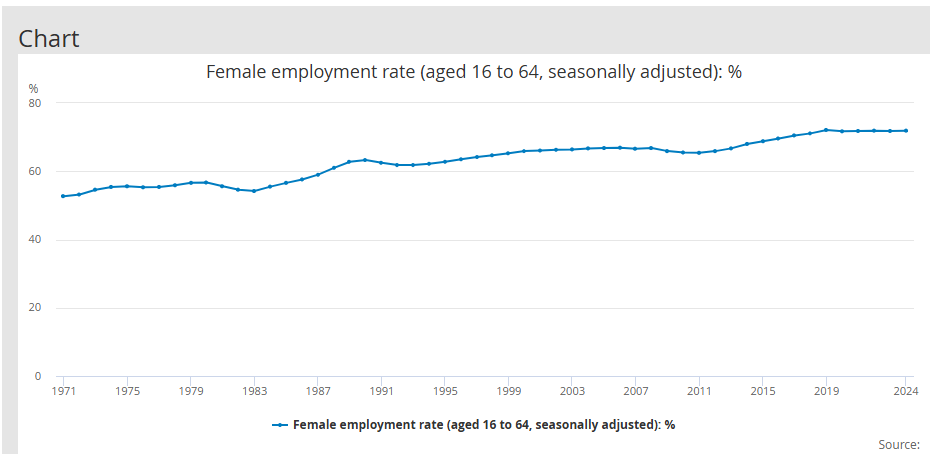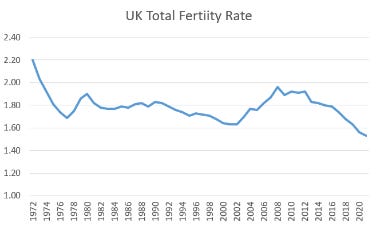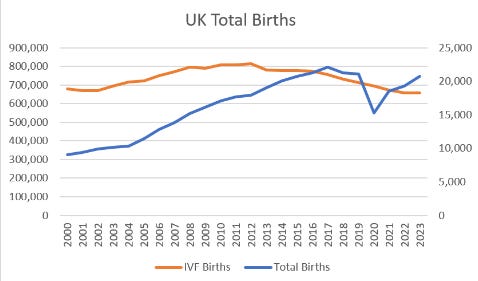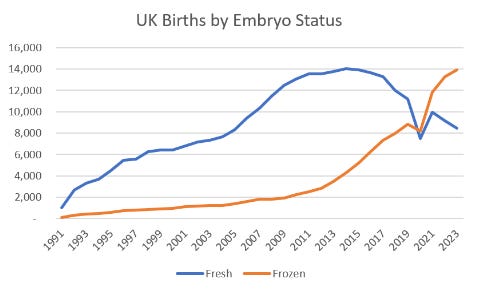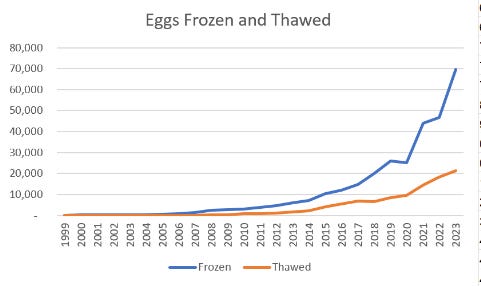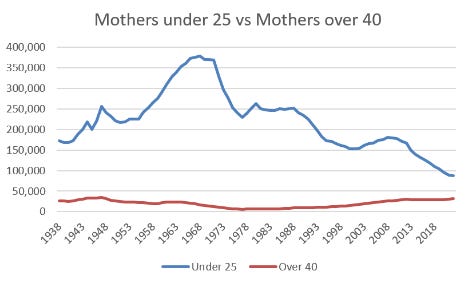Recently the Economist and almost every other news organisation and politician has begun to despair at birth rates. In almost every country fertility rates have fallen to new lows, and even nations like Hungary that are held up as pro-natal leaders still have below replacement rate fertility rate. This week’s Economist put the problem with fertility as a crisis of loneliness - where people want to meet someone, but cannot. If I had to summarise the article it would be, either men need to raise their standards (do more housework), or women need to lower theirs (give short kings a chance).
One idea I have had is that the fall in fertility has been driven by women becoming mothers later in life, which has reduced the ability to have multiple children. If we look at workforce participation by women, it took off in the 80s. In the UK, female participation rate was 50% in 1970, and is now closer to 70%.
UK Total Fertility rate has been below replacement ever since.
One option would be go “Handmaids Tale” style and ban women from work. I feel this is somewhat extreme. A much better method would be to use technology to extend the period over which women can give birth. Looking at UK IVF data, this option seems to be coming into view. IVF births now make up slightly more than 3% of all births in the UK, bouncing back after a Covid slump.
This by itself is not that impressive. But hidden in the data from HFEA is some very interesting shifts. The majority of UK IVF births comes from frozen embryos. If we do a HUGE generalisation here, lets say the majority of fresh IVF was by mothers who needed help conceiving (that is they want to be pregnant now). And frozen embryos are from mothers who decided to freeze eggs until the time is right (that is they want to be pregnant in the future). It is more complicated than that, and also driven by huge improvements in freezing and thawing technology - but as a generalisations go its okay.
US data has shown that its the age of the embryo that is more important than the age of the mother. Improvement in thawing and freezing technology should mean that giving births in your late 30s and 40s more successful using IVF. Plainly mothers have gotten the message. Freeze your eggs when you are below 30 is a good insurance policy.
The question then is how many eggs are getting frozen, and how many are getting thawed. HFEA gives us that data as well. It is the frozen number that is getting me excited. I knew that freezing eggs is becoming more common, but to see some hard numbers is exciting.
Eyeballing these numbers, there seems to 6 to 7 year lag between freezing and then thawing. I have no proof that this relationship will hold, but just for argument’s sake, I will assume it holds. Using rough numbers, this would imply about 60,000 IVF births from frozen embryos in 2030. That would move IVF to 10% of all births in the UK (around Japanese levels today). But what it would also mean is that the effective age at which mothers could stop becoming pregnant would also be pushed back. If 10% of mothers have their first child with IVF, and if those mothers have eggs frozen, should we also begin to see an exponential rise in older mothers. There already signs of this, but if we look at eggs being frozen only really taking off in the 2020s, we should only see a surge in the 2030s.
It seems like the technology is in place for the baby boom, and with young women freezing eggs in ever greater numbers, then the intention is there. The only last ingredient is to get cost of living down - which requires housing prices to moderate. My reading is that both left wing and right wing politicians agree on building more homes, so this is a policy that should come to fruition.
If this analysis is correct, then it will prove Russell Clark’s third iron law of politics: “If everyone is worried about something, then the chances of it happening are close to zero”. Everyone is worried about steeply declining populations - I see this as unlikely. Populations will flatten out at worst I think.



